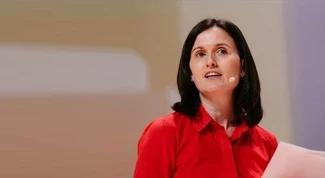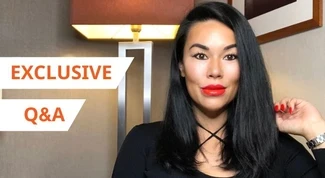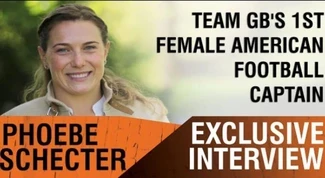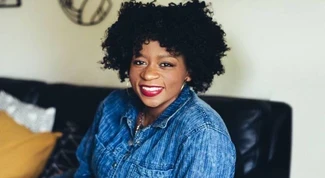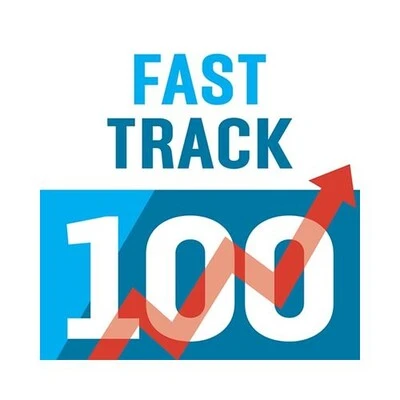We at Champions Speakers were thrilled to sit down with the first female Match of the Day presenter, Eniola Aluko, in this exciting interview! Eniola has played for the likes of Chelsea, Juventus, and even competed for her country at the 2012 London Olympic Games.
Best known for her role with England’s female football team, our Sales Executive, Chris Tompkins, sat down with Eniola to hear how her experience on the pitch shaped her as a person.
Do not miss our Q&A with one of football’s greatest female players, Eniola Aluko! Continue reading to find out what she would advise her younger self.
You recently said that the England team is not diverse enough; what more must be done to improve diversity in football?
Chris: Racism and diversity are big issues within sports, particularly football. As a diversity and inclusion speaker, and a professional footballer, how must we improve diversity in football?
Eniola: “I think that in football, people are just really lazy about recruitment and people just want to recruit the people that look like them, sound like them, think like them.
“So, to improve diversity and inclusion in football, you need to be much more intentional about who you’re recruiting, where you’re recruiting and how you’re recruiting. You must avoid looking in the same place you’ve always looked or avoid looking in the same networks you’ve always looked at.
“I also think there’s a real issue around what people associate with ‘competency’. So, people have always associated competency with a certain look – it’s a white man, right? Whereas competency is much broader than that.
“When people come to an interview, people automatically go, ‘they’re not good enough’, because they’re not white, so they don’t get hired. We’ve now got to a point where there are diverse candidates that are part of the interview process, but they never get the job.
“People still don’t see competency and they go, ‘well, they’re not ready’. How are they ever going to be ready if you don’t give them the opportunity to fail, or to improve?”
What is your proudest sporting achievement?
Chris: You have led a long and successful sporting career; looking back, what is your favourite achievement?
Eniola: “My proudest sporting achievement… I’ve got a few, but if you must put me on the spot, I’d definitely say winning the FA Cup for Chelsea in 2015 at Wembley.
“It was the first time ever that the FA cup was at Wembley. There were thousands of fans there and I got the Player of the Match! It was probably the best day of my life.”
Can you describe a time when you faced hardship, and how did you overcome the challenge?
Chris: Sportspeople like yourself are experts in mental resilience... how have you experienced hardship?
Eniola: “Oh yeah, I have faced hardship in my career. I’ve faced hardship a lot, really, with my club team, with the national team.
“I obviously had a very public case and honestly, I think I got through it by just having people around me that really supported me and knew me, not the person that the press was talking about. They didn’t listen to the rumours that were going around about the case. They knew me.
“But even sometimes when you have other people, you can still feel lonely, you can still feel alone in that moment. So, I always try to just stay true to, ‘why am I going through this?’ and ‘how is it going to help me be stronger?’.
“Hardship is deliberately hard. It’s not easy and there’s no hard and fast way of getting through it, but you always must stay true to who you are. Don’t let it defeat you.”
Which qualities are needed to succeed as a footballer?
Chris: If anyone reading has aspirations of becoming a footballer, what qualities do you believe are essential for them to succeed?
Eniola: “I think to succeed as a footballer, you need to be skilful, you need to be talented and gifted. You also need to know how much hard work goes into honing your craft.
“You need to know that you’re in a team. It’s not just about your skill, it’s also about how your skill fits in with the rest of the team.”
Several footballers have experienced racist abuse from audiences and even fans of the team, whose responsibility is it to prevent this?
Chris: Racism is a huge issue in football, so much so that many footballers have become diversity speakers to tackle prejudice. Whose responsibility is it to eliminate racist abuse?
Eniola: “Well, it’s obviously the responsibility of the person doing the abusing. But to that extent, you will always have really idiotic people.
“The responsibility is for the clubs and the stadiums to make sure there are punishments in place when these people act in that way.
“I think it’s also the responsibility of the governing bodies to make sure there are consequences in place, so people know if they do behave in that way, it’s zero-tolerance. It cannot be a small fine, it must be substantial.”
How has a career in football-shaped you into the person you are today?
Chris: As a footballer speaker, you often reflect on your career. How has your experience as a footballer for the England team shaped you into the person you are today?
Eniola: “Oh, football has given me everything!
Football has given me the ability to believe in myself, have self-confidence, travel the world, meet people that I would never, ever would have met. It’s given me discipline, determination, focus.
“When I was playing for the England team as a teenager, I couldn’t go out drinking and raving. And there’s nothing wrong with doing those things, but it really allowed me to focus my mind and not get side-tracked or get into bad crowds.
“It’s given me everything, really. It’s allowed me to get into rooms that I never would have got into. I met the Queen because of football!
“It’s really a question that I could go on and on and on about. I’m very grateful.”
If you could give your younger self one piece of advice, what would it be?
Chris: To close our interview today... imagine you are sat at a table with your younger self, you can give her one piece of advice, what would it be?
Eniola: “I get asked this a lot, actually.
“I always say that when I look back, I was so busy caring about what everyone else thought. I was so busy caring about, like, ‘what does my coach think?’, ‘what does my teacher think?’, ‘what does this think or that think?’
“I never really stopped to work on what I thought about myself. And when you get on later in life, your self-validation, your self-talk, your self-confidence, it all starts with you.
“You really do need to be able to say, ‘no, I’ve got this, I can do this without having to wait for the applause from other people’, because what happens if it doesn’t come? You still have do it anyway!
“I was quite late in building my own self-talk and self-confidence, and so if someone would say I wasn’t very good it would really get to me. It would take so long for me to believe that I could do it again.
“So yes, that’s what I would tell my younger self.”
Book Eniola Aluko
Contact the Champions Speakers agency to provisionally enquire about Eniola Aluko for your event today. Simply call a booking agent on 0207 1010 553 or use our online contact form for more information.
